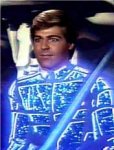I base my cosmology around two things: one, a god's power comes from faith; and two, that no one walks around with a certificate from AAA saying that they are, in fact, a god.
My campaign borrows heavily from Robert Jordan's Wheel of Time (there is a Dreamworld, that people can reach by talent or magic), and C. S. Friedman's Black Sun Rising series (your fears, hopes, and dreams can shape the world).
What this leads to, is a world where each city or town has a handfull of gods, called into being by the needs of the citizens. If enough people start believing the god will manifest and grant small boons to the faithful, the god will manifest and grant boons. However, because of the small number of worshippers each god has, their power is limited to that of a high level wizard or cleric, high in this case being 18-25th level. So, if a "god" is truly despotic, there are heroes who can fight them directly.
Of course, when you add in the fact that any being capable of casting high level spells can reliably fool your average Joe into thinking he has ultimate power, it gets messy. Demons, Devils, Great Wyrms, the eldest masters of the Dreamworld, all can (and will) interfere with the world of men, seeking the gain the power that faith can give them. After all, convince enough people that pesky mortal weapons can't harm you, and you just may end up immortal. At least, untill someone with just as many worshippers comes after you...
There are "real" god(s) in my game (distant, unknowable, and all powerful), but they are used more as a plot device to expound on my belief that faith isn't really faith when you can jog down the block for a demonstration that your god is real, and thus not really suited to what the original poster was looking for.

